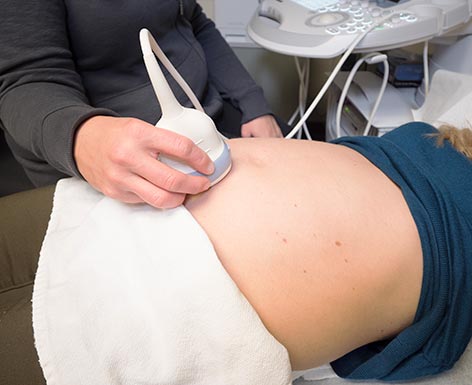If you are pregnant with twins and don’t know what to expect, you are not alone! Your pregnancy is as unique as you are, and at West Des Moines OBGYN Associates we individualize your care plan every step of the way. At West Des Moines OBGYN Associates we provide care for high-risk pregnancies including twin gestations.
Factors that Increase the Odds of Twins
Advancing maternal age. Women in their late 30s and 40s are at higher risk of a twin pregnancy.
Heredity. A woman that is a twin or with twins in her family is more likely to conceive twins.
Assisted Reproductive Techniques. Fertility treatments including Clomid, Femara, and IVF can increase the risk of twins and higher-order multiples.
What To Expect During Pregnancy
With a two-fetus pregnancy, you can expect more frequent visits to the obstetrician. You will have more monitoring including ultrasounds during your pregnancy. You may also be referred to a maternal-fetal medicine specialist depending on the type of twins you are carrying.
Common Pregnancy Symptoms and Complications with Multiples:
- Morning Sickness. Morning sickness with two fetuses can be worse than in a woman who is expecting a singleton due to the higher levels of HCG hormones. You may even suffer from hyperemesis.
- Back Pain. Worsening back pain is common as the pregnancy progresses and you have more strain on the lumbar region as the fetuses grow larger.
- Preeclampsia and gestational hypertension. The risk of preeclampsia and gestational hypertension is higher with twin pregnancies. Preeclampsia is marked by high blood pressure and protein in the urine.
- Weight Gain. While weight gain during pregnancy is normal, you may notice you are gaining more weight when you are carrying twins because you are carrying two of everything; babies, placenta, and amniotic fluid. You will also require more calories to help feed not only yourself but your two growing fetuses.
- Gestational Diabetes. Mothers of multiples have a higher risk of developing gestational diabetes.
- Preterm labor and delivery. It is not uncommon for women with a twin pregnancy to have preterm labor and even preterm delivery. On average women with twin pregnancies give birth at approximately 36 weeks. It is typically recommended that women with diamniotic/dichorionic twins deliver by 38 weeks gestation. Other higher-risk twin gestations are delivered even earlier than this.
What To Expect When Delivering
Mothers expecting multiples can typically expect to give birth several weeks earlier than mothers carrying only one fetus. The mode of delivery will be determined by the position of the fetuses and gestational age. Multiple births occur in the operating room to be prepared for any emergency requiring immediate cesarean delivery.
After your twins are born and you head home, try to get them on the same eating and sleeping schedules. This will also ensure you have time to rest when they are. It is important to also make sure you have set up help and support in advance. Having someone to help cook meals or sit with the babies while you rest is very important. Don’t be afraid to limit the number of visitors and if you feel visitors are causing more harm than help, it is okay to allow them to come sparingly.

What Are The Different Types of Twins?
The chronicity or type of twin pregnancy is determined by early ultrasound findings. It is important to determine the type of twin as certain types have a higher complication rate. The majority of twins are dizygotic or monozygotic.
- Identical Twins (Monozygotic). Identical twins develop from a single fertilized egg and might even share the same placenta and amniotic sac (monochorionic/monoamniotic). Identical twins are less common than fraternal twins and have identical DNA.
- Fraternal Twins (Dizygotic). Fraternal twins develop after two eggs are fertilized separately by two sperm. Fraternal twins do not have identical DNA like identical twins. Dizygotic twins are always carried in separate sacs (diamniotic) and have separate placentas (dichorionic).
At West Des Moines OBGYN, we’ll always put your needs first and develop the appropriate care plan for you. With our team’s years of experience providing obstetrical care services, you can rest assured both you and your babies will be taken care of.


